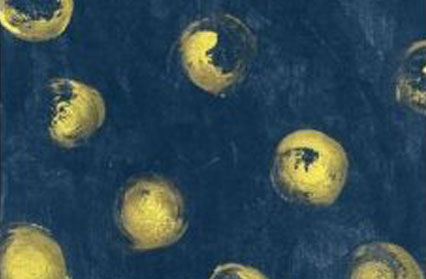Francesca Rhydderch reviews Tywyll Heno by Kate Roberts as part of a Wales Arts Review series searching for the ‘Greatest Welsh Novel’.
I am not sure I like the word ‘great’, not when it is used in the same sentence as the ‘novel’, anyway. It ushers in a whole host of men, for one thing (some of them deserving, some less so), and for another, it raises questions of quality which can only be answered in the fullness of time. I would agree with Virginia Woolf that we cannot really measure the artistic success of a work produced in our own lifetime. This, along with the gender inequalities embedded in the literary canon, was an issue she worried her way around in almost all her critical essays. She did so partly out of a deep-rooted anxiety about the reception of her own fiction: her final nervous breakdown was partly attributable to her fear that her latest novel Between the Acts was not as strong as her earlier work. I sometimes wonder how she would have felt as she waded into the River Ouse with her pockets full of stones if someone had told her that the canon-makers of the late twentieth century would be spoiled for choice as far as she was concerned.
Woolf’s Welsh-language counterpart, Kate Roberts, who suffered in equal measure both from depressive episodes and ongoing anxiety about the quality of her own writing – and who produced an equally impressive body of work – would perhaps have been similarly hard-pressed to predict which of her numerous novels and collections of short stories would find its place in the literary canon. Popular opinion maintains that Traed Mewn Cyffion [Feet in Chains], her 1936 family saga about the effects of the First World War on Welsh culture and identity, was her ‘greatest’ novel. But when you stand back and consider at her work as a whole, it is the writing that came out of her middle years which is the most interesting and technically virtuosic. Short novels such as Stryd y Glep [Gossip Row], 1949, are arguably as political as her earlier books: it is just that when she reached middle age, following the sudden death of her husband Morris Williams from alcoholism, she started to look inwards. Her landscapes became largely interior, and her books from this time are clouded in the kind of claustrophobic ennui which too easily attracts the marginalising label of ‘women’s fiction’. You have only to look at the most recent Man Booker longlist (on which just three out of thirteen writers are women) to see how easy it still seems to be – unintentionally or otherwise – to sideline fiction by writers who happen to be female.
Roberts’ ‘greatest’ work, without a doubt, is a novella called Tywyll Heno [Dark Tonight]. Produced when her writing still had a sparkling vitality – before that antsy liveliness morphed into a more static muscularity in her later years – it has a permeable, flexible quality that makes it stand out from the rest of her work. It is also built on one striking concept: a Nonconformist minister’s wife loses her faith and ends up at the local asylum. Roberts’ story begins and ends within the central tenets of Welsh Nonconformity, including the repressive roles foisted on women in a still deeply religious culture.
Although this is a personal, domestic story, it takes place against a backdrop of broader change – Nonconformity losing sway, the Anglicisation of the north Wales border town where our protagonist Bet Jones lives, the young losing respect for the old, her son becoming detached from her in his teenage years. At the heart of the book is a bottomless pit of angst which transcends the borders of an individual society or distinct culture, an existentialist fear that beneath all this there is simply – nothing. The power of this short book lies in its terrible bleakness.
Bet’s breakdown is both literal and literary – its articulation springs from one word, syrffed [fed up]. In the throes of her breakdown, she finds solace in the words of the old poets, most especially the ninth-century saga poem Canu Heledd, the song of Heledd (sister of Cynddylan, king of Powys): ‘The hall of Cynddylan is dark tonight / Without fire, without a bed. / I will weep for a while; then I will be silent.’ Roberts connects her protagonist with other women through a specifically Welsh literary line and makes the domestic spaces associated with ‘women’s writing’ resonate with a deeper meaning beyond the immediate and everyday. She literally speaks Bet’s madness into being, and she voices her own literary tradition in order to do so.
The structure of this multi-layered novella also mimics the simplicity and redemption of a talking cure. After the Second World War Kate Roberts got to know the Hungarian psychoanalyst Lilla Wagner, and through their correspondence she learned much about modern thinking on psychology. By speaking Bet’s madness into being, Roberts sees her protagonist talking herself back to full health, and despite the fact that there are never any happy endings in Kate Roberts’s work, there is here a complex yet satisfying sense of resolution.
Although Roberts could not have known it at the time, the desperate years after the war when she was mourning her husband, struggling to keep her printing business afloat, and trying to find her way as a writer again after a period of silence, would be the most fertile of her long life. They became the seed-bed of a second flowering which would bring this, her best single work, to fruition, in which the brilliant beam of her desolate vision would – for a tantalisingly short time – pierce the darkness.
Banner illustration by Dean Lewis
This piece was a part of Wales Arts Review‘s ‘Greatest Welsh Novel‘ series.












